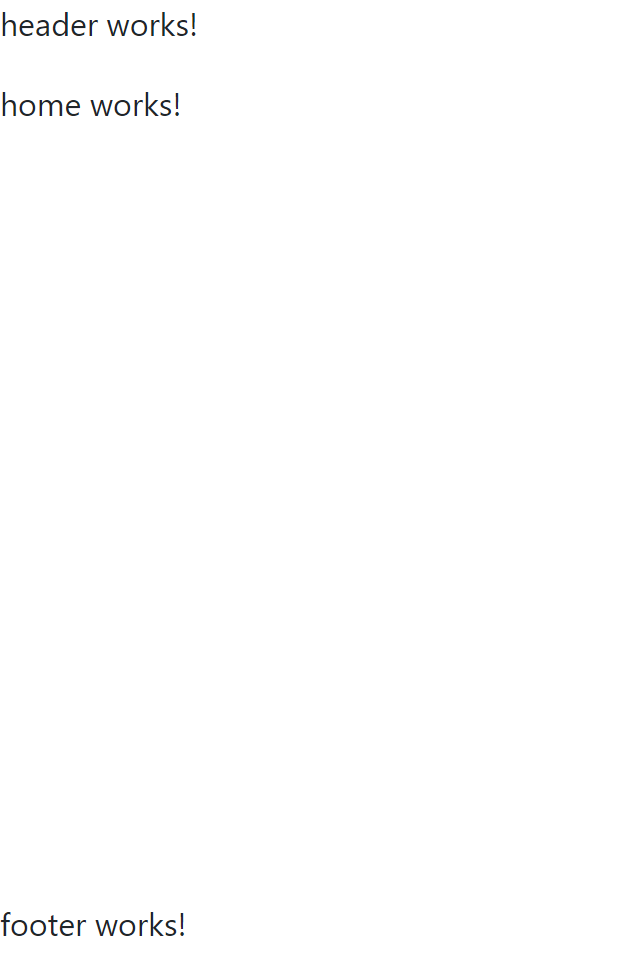Overview
Prerequisites
- Add Bootstrap CSS
- Add SASS
1. Create Header
In the terminal (from your project folder) run the following CLI command
ng g c frame/header --module app
This will create a new component in app/frame folder
2. Modify header.component.ts
Replace selector: 'app-header', with this line:
selector: '[app-header]',
3. Create Footer
In the terminal (from your project folder) run the following CLI command
ng g c frame/footer --module app
This will create a new component in app/frame folder
4. Modify footer.component.ts
Replace selector: 'app-footer', with this line:
selector: '[app-footer]',
5. Modify app.component.html
DELETE everything in this file. Replace with these lines:
<header app-header></header>
<main id='page'>
<router-outlet></router-outlet>
</main>
<footer app-footer></footer>
Dynamic content (your pages) will be loaded into <router-outlet></router-outlet>
6. Add Styling
Add the following styles:
body, html {
min-height: 100vh;
height: calc(var(--vh, 1vh) * 100);
}
.wrapper {
display: flex;
flex-direction: column;
min-height: 100%;
}
footer {
margin-top: auto;
}
Modify the html of both Header and Footer components. Templates for navbars can be found here Boostrap 5 Navbars.
7. Add Home Page
In the terminal (from your project folder) run the following CLI command
ng g c pages/home --module app
Modify app-routing.module.ts with the following lines:
import { HomeComponent } from './pages/home/home.component';
const routes: Routes = [
{
path: '',
pathMatch: 'full',
component: HomeComponent
},
];
8. Serve
In the terminal (from your project folder) run the following CLI command
ng serve --port=4000 --open
Browser will open and you should see something like this: 